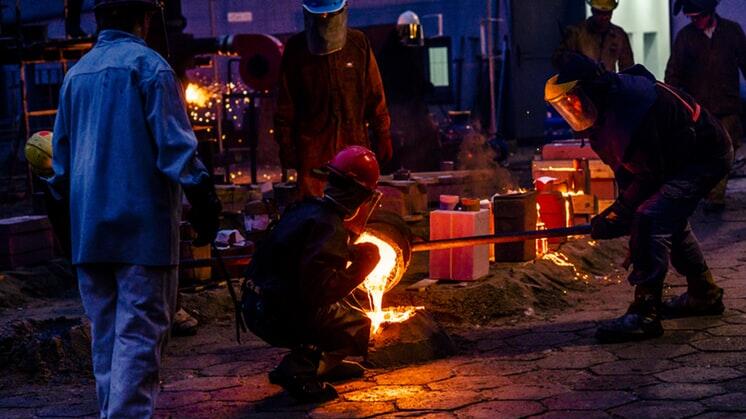 Policy & Regulation
Policy & RegulationMore evidence of problems with EU Emissions Trading System
Summary
Tata Steel has benefited from more than £700m in free carbon allowances and offsets. Tata Steels chairman argued that the ETS put its Port Talbot steelworks at a competitive disadvantage. The notion cleaner European steel manufacturers could be forced to migrate to compete appeared commonsensical. But one problem the European commission faced in supporting compensation was a lack of evidence that such leakage had ever occurred. Saving billions of dollars that can be used to support a just transition for workers in fossil fuels and invest in renewal for vulnerable communities is worth doing. The closure of Britains mining industry may have been a defining
but the question is why employers should be shielded from its logic when their workers are not. Back to the markets-first model is being extended to steel, but employers shouldn't be shielded when workers aren't working for steel, says Peter Bergen, who will pay for the low-carbon-energy revolution, he says. For steelworkers, he adds.
Open full article
More evidence of problems with EU Emissions Trading System
There are concerns in the UK that Tata Steel could close its operations, leading to severe job cuts and economic disruption. Looking at the company from another angle, Arthur Neslen writes in The Guardian about how the company has benefited from more than £700m in free carbon allowances and offsets, according to analysis of emissions trading scheme data. This is not a story simply about Tata Steel. Read the article and see how many others have benefited.
Tata Steel benefited from EU climate policies, studies show
No other British company has benefited from the EU’s emissions trading scheme as much as Tata Steel, according to a recent report by consultants CTDelft. And it’s not alone — only firms in one country, Germany, received more than the €3bn pocketed by British businesses through the ETS between 2008 and 2014.
Yet Tata Steel’s chairman, Theo Henrar, argued that the ETS put its Port Talbot steelworks at “a competitive disadvantage”, because foreign rivals were not burdened by such tough environmental rules.
Enraged environmentalists have countered with studies by independent consultancies and market analysts showing that since 2008, Tata has taken more than £700m from the ETS in free allowances, offsets and windfall profits passed through to consumers.
Before the Paris climate agreement put all countries on notice to lower their emissions, the argument for “carbon leakage” measures – compensation to stop companies relocating their businesses elsewhere in the world because of Europe’s climate policies — appeared robust. The notion that cleaner European steel manufacturers could be forced to migrate to compete appeared commonsensical.
But one problem the European commission faced in supporting compensation was a lack of evidence that such leakage had ever occurred, according to its own studies. An OECD report last month was the latest to conclude that “tougher environmental laws do not hurt export competitiveness”.
In practice, the glut of free carbon allowances under the ETS – which cost the UK £13bn in lost revenues – has worked less as a trade protection, and more as an undeclared subsidy, or tax break. But labour costs in the UK are around 20 times higher than in China and, despite the handouts under the ETS, cheap Chinese steel imports to Britain more than doubled in 2014. Research suggests that subsidies for polluters were, for the most part, not spent on innovation or research.
Sharan Burrow, the secretary general of the International Trades Union Confederation and a New Climate Energy commissioner, complained that the handouts also depleted funds that could have enabled a more just energy transition. “Companies must accept [that] industrial transformation is essential to stabilise the planet and stop demanding a free ride,” she said. “Saving billions of dollars that can be used to support a just transition for workers in fossil fuels and invest in renewal for vulnerable communities is worth doing.”
Safeguards for such communities in places like Port Talbot were not high on the agenda of the EU institutions – or environmentalists – when the carbon leakage debate raged in Brussels. But they will probably heave into view again, as the proposed Port Talbot buyout by Sanjeev Gupta’s Liberty Group is examined.
Gupta reportedly wants to replace the blast oxygen furnace used at Port Talbot with an electric arc furnace. Arc furnaces are secondary steel plants. They recycle scrap steel that has already been made – and use electricity rather than coal or gas to power their production process. Industry sources say that these plants – which make up around 40% of Europe’s capacity – typically produce nearly five times less CO2 than blast furnaces.
If Gupta’s plans to power an arc furnace in Port Talbot with renewable energy are realised, its greenhouse gas emissions could be greatly reduced. The Carbon Commentary blog estimates that a switch from blast to electric arc furnaces would save over three tonnes of CO2 for each tonne of steel.
For steelworkers, though, this would be a mixed blessing, as arc furnaces employ far fewer people. Profits might be increased by the scything of pensions payments, but communities would also be devastated by mass layoffs. And that brings us back to the “just transition” question of who will pay for the low-carbon-energy revolution.
The closure of Britain’s mining industry may have been a defining moment for “green conservatism”, albeit at a terrible human cost. But the question, when the markets-first model is being extended to steel, is why employers should be shielded from its logic when their workers are not.


